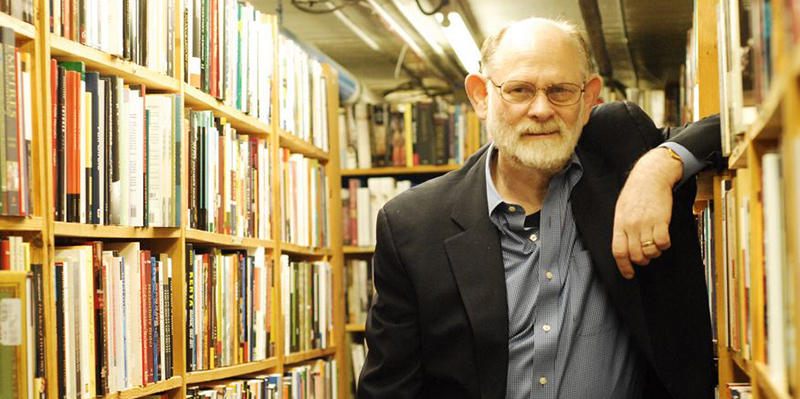
Prof. Bruce Lincoln is the Caroline E. Haskell Professor of the History of Religions in the University of Chicago’s Divinity School. These theses are from Method & Theory in the Study of Religion vol. 8 (1996): 225-27 and are posted with permission from the author.
1. The conjunction “of” that joins the two nouns in the disciplinary ethnonym “History of Religions” is not neutral filler. Rather, it announces a proprietary claim and a relation of encompassment: History is the method and Religion the object of study.
2. The relation between the two nouns is also tense, as becomes clear if one takes the trouble to specify their meaning. Religion, I submit, is that discourse whose defining characteristic is its desire to speak of things eternal and transcendent with an authority equally transcendent and eternal. History, in the sharpest possible contrast, is that discourse which speaks of things temporal and terrestrial in a human and fallible voice, while staking its claim to authority on rigorous critical practice.
3. History of religions is thus a discourse that resists and reverses the orientation of that discourse with which it concerns itself. To practice history of religions in a fashion consistent with the discipline’s claim of title is to insist on discussing the temporal, contextual, situated, interested, human, and material dimensions of those discourses, practices, and institutions that characteristically represent themselves as eternal, transcendent, spiritual, and divine.
4. The same destabilizing and irreverent questions one might ask of any speech act ought be posed of religious discourse. The first of these is “Who speaks here?”, i.e., what person, group, or institution is responsible for a text, whatever its putative or apparent author. Beyond that, “To what audience? In what immediate and broader context? Through what system of mediations? With what interests?” And further, “Of what would the speaker(s) persuade the audience? What are the consequences if this project of persuasion should happen to succeed? Who wins what, and how much? Who, conversely, loses?”
5. Reverence is a religious, and not a scholarly virtue. When good manners and good conscience cannot be reconciled, the demands of the latter ought to prevail.
6. Many who would not think of insulating their own or their parents’ religion against critical inquiry still afford such protection to other people’s faiths, via a stance of cultural relativism. One can appreciate their good intentions, while recognizing a certain displaced defensiveness, as well as the guilty conscience of western imperialism.
7. Beyond the question of motives and intentions, cultural relativism is predicated on the dubious–not to say, fetishistic–construction of “cultures” as if they were stable and discrete groups of people defined by the stable and discrete values, symbols, and practices they share. Insofar as this model stresses the continuity and integration of timeless groups, whose internal tensions and conflicts, turbulence and incoherence, permeability and malleability are largely erased, it risks becoming a religious and not a historic narrative: the story of a transcendent ideal threatened by debasing forces of change.
8. Those who sustain this idealized image of culture do so, inter alia, by mistaking the dominant fraction (sex, age group, class, and/or caste) of a given group for the group or “culture” itself. At the same time, they mistake the ideological positions favoured and propagated by the dominant fraction for those of the group as a whole (e.g. when texts authored by Brahmins define “Hinduism”, or when the statements of male elders constitute “Nuer religion”). Scholarly misrecognitions of this sort replicate the misrecognitions and misrepresentations of those the scholars privilege as their informants.
9. Critical inquiry need assume neither cynicism nor dissimulation to justify probing beneath the surface, and ought probe scholarly discourse and practice as much as any other.
10. Understanding the system of ideology that operates in one’s own society is made difficult by two factors: (i) one’s consciousness is itself a product of that system, and (ii) the system’s very success renders its operations invisible, since one is so consistently immersed in and bombarded by its products that one comes to mistake them (and the apparatus through which they are produced and disseminated) for nothing other than “nature”.
11. The ideological products and operations of other societies afford invaluable opportunities to the would-be student of ideology. Being initially unfamiliar, they do not need to be denaturalized before they can be examined. Rather, they invite and reward critical study, yielding lessons one can put to good use at home.
12. Although critical inquiry has become commonplace in other disciplines, it still offends many students of religion, who denounce it as “reductionism”. This charge is meant to silence critique. The failure to treat religion “as religion”–that is, the refusal to ratify its claim of transcendent nature and sacrosanct status–may be regarded as heresy and sacrilege by those who construct themselves as religious, but it is the starting point for those who construct themselves as historians.
13. When one permits those whom one studies to define the terms in which they will be understood, suspends one’s interest in the temporal and contingent, or fails to distinguish between “truths”, “truth-claims”, and “regimes of truth”, one has ceased to function as historian or scholar. In that moment, a variety of roles are available: some perfectly respectable (amanuensis, collector, friend and advocate), and some less appealing (cheerleader, voyeur, retailer of import goods). None, however, should be confused with scholarship.